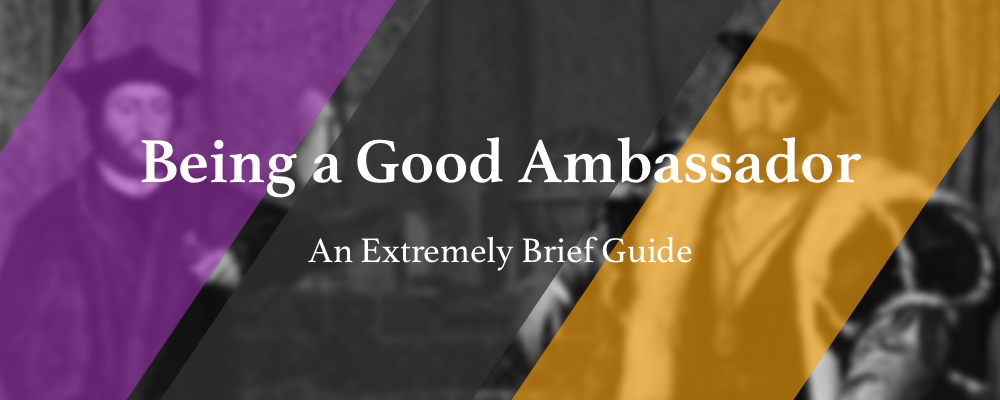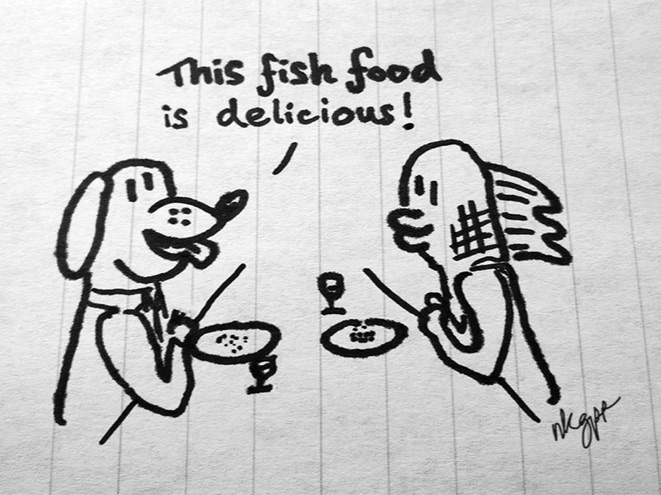I’m always in awe of people who shift themselves from their well established comfort zones and settle into a new place. Moving countries accentuates the challenge this brings by immersing the candidate in a plethora of habit-relearning challenges. As a universal philosophy, a stranger, especially a foreign one who is perceived as being good is more welcome than one perceived with any form of negativity - this can be observed the world over. Whether you’re representing your country, your company or any other reputation-based commodity, it pays dividends to conduct yourself in a positive light at all times.

Having lived abroad before, these tips have worked for me in becoming a successful international ambassador and in fostering warm relationships in foreign lands:
Befriend the locals
This is crucial and isn’t as hard as it sounds. Networking and friendship-building is a fundamental skill as a primate, whether you’re at home or abroad. Since you’re likely in the country for a reason, be it working or studying, you can tap into your immediate circle of people you have regular contact with on a day-to-day basis.
If this has too much collateral accompanying it, join a Meetup that speaks English and connect over a common hobby or liking. Avoid the pitfall of joining “expat” Meetups, especially if you’re from an English speaking country; you’ll probably need them eventually when you’re homesick from time-to-time but try your best to break the ice with locals – they’ll provide you with insights that you wouldn’t get from expats.
Be honest about your intentions and establish reputation
Create curiosity in people and let them play with it. It’s likely they’ll pick up on the fact “you’re not from around here” by your accent and this provides a good footing for qualifying conversation.
If you’re there to study, describe your subject; if you’re working, describe what you’re doing and who you’ll benefit – build your social reputation so people can stand behind you if they’re not doing so already. The potential here is that people can forget you’re a foreigner, which is what we want to reduce cultural friction, and see you in a professional or other light.

Compliment the local culture where it’s due
Once your intentions are established, remember to follow through with compliments. Charisma on Command has unmissable information about this – I suggest you check them out if you’re curious to learn more.
The fastest way to make inroads with people is to highlight what they’re good at. This can cover topics from cuisine and fashion to sports and historical landmarks. Sending compliments their way creates a foundation of trust and encourages them to reflect the sentiments back. But don’t over do it if you don’t feel genuinely inclined – as a universally recognised concept, sycophantism will work against you, especially when your non-verbal communication doesn’t match your intent. Engage in the local culture and find things that you love to talk about.
Avoid potential faux pas
Do your homework and read up on the local niceties and particulars that people in that country abide by. If you still don’t know, ask someone you can trust to explain more; there may be rules and protocols that may be hard to find on the internet.
One time, my hunger-driven enthusiasm earned me a slap on the wrist for grabbing a cutlery fork before everyone received their food and said grace. In my defence, I’d been at a dinner the night before where this wasn’t protocol so etiquette can vary even within cultures. Gathering your intel ahead of time saves you from any potentially awkward situations.
Win over a mentor
When immersed in another culture, people will forgive you for being a bumbling foreigner; but this doesn’t do you any favours in strengthening your cause and building your growing social reputation in a positive light. If you’re lucky, you’ll soon find open-minded individuals who are willing to lend you a hand in supporting you on your cultural journey – make these people your best friends and consult with them often.
In closing, perception and reputation are closely intertwined. Make connections that positively contribute to your perceived value. In turn, you not only do a good service to yourself but the collateral value permeates through to the people of the future you represent in the mind’s eye of your hosts.

